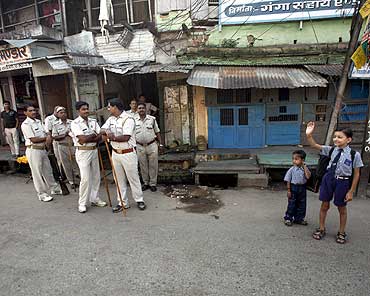
The Supreme Court on Tuesday dismissed the plea seeking deferment of the verdict on the Ramjanamabhoomi-Babri Masjid title suit by the Lucknow bench of the Allahabad high court.
The three-judge bench headed by Chief Justice S H Kapadia gave a unanimous order rejecting the plea. The Supreme Court gave the green signal to the Allahabad high court to go ahead with the pronouncement of the verdict in the case.

"Having considered in detail the arguments of the parties, we are of the view that the SLP has to be dismissed. Accordingly, the SLP stands dismissed," said the bench.
The court's order came after two hours of arguments on a plea for the deferment of the judgment by the Lucknow bench of the Allahabad high court, filed by a retired bureaucrat Ramesh Chandra Tripathi, who sought time to work out an out-of-court settlement.
However, it did not specify any reason for its decision no to fix any date for the judgment to be delivered by the Allahabad high court.

With this, the way has been paved for the high court to give its judgment shortly, in view of the fact that one of the judges of the three-member bench, Justice D V Sharma, is to demit office on October 1.
Earlier, Attorney General G E Vahanvati said that uncertainty should not be allowed to continue. Appearing before the bench that included Justices Aftab Alam and K S Radhakrishnan, he said the most preferred solution to the problem would be settlement, but it has not taken place and the uncertainty which is prevailing should not be allowed to continue.
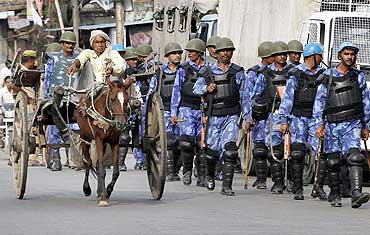
The three-judge bench headed by the Chief Justice gave a unanimous order. During the arguments, the attorney general said, "Settlement, if any possible, we welcome it but we do not want any uncertainty."
Since 1999, the stand of the Union government has been for settlement, but that has not taken place, he said.
"We would like a resolution of the matter in one way or the other. We cannot keep the law and order machinery in sustained animation," Vahanvati said.
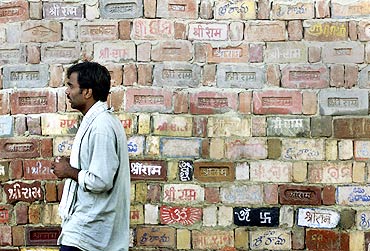
The AG added, "My position is very clear. I am of the view for implementation of the decision of the suit. This is what we have to do as per the mandate of 1994".
Vahanvati also referred to the verdict of the Constitutional bench on the land acquisition at the disputed site in Ayodhya. He refuted the allegations of senior advocate Mukul Rohatgi, who was appearing for Tripathi that the Centre sat meekly and only stood as a receiver of the disputed land.
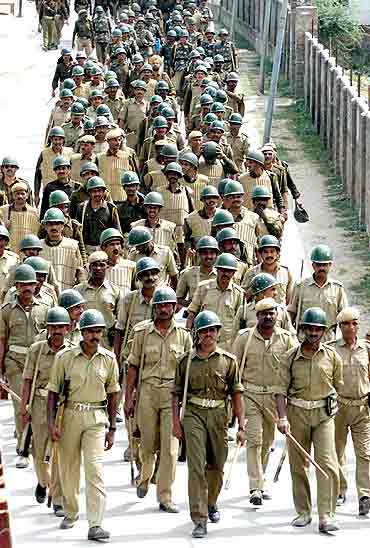
Vahanvati said the government was committed to maintaining the rule of law and was under obligation of the undertaking given by it to the apex court on September 14, 1994 that it will make attempts to resolve the issue through continuous negotiations.
The attorney general also countered the allegations of Rohatgi that it was not 'pro-active' in attempting to resolve the dispute through settlement and the process of negotiation. He said the government believed in respecting the rule of law.
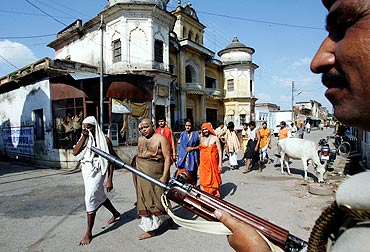
He also countered the argument that the tenure of one of the retiring judges could be extended as the Centre has no power in this regard, which is vested with the chief justice of the high court. Only to a certain extent, recommendations can be made by the apex court collegium, he said.
Earlier, counsels pleading for the deferment of the verdict by the Lucknow bench of the Allahabad high court said the court and the government could try an innovative approach to evolve an out-of-court settlement.
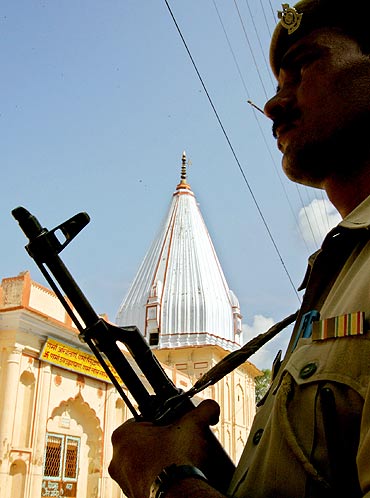
However, counsels for all the parties to the dispute, except Nirmohi Akhara, opposed the plea for deferment. Appearing for Tripathi, senior counsel Rohatgi said the dispute was an emotional issue and the court and the government should take an innovative and proactive approach to evolve a mediated settlement.
On fears that the retirement of one of the three judges of the Lucknow bench of the Allahabad high court shortly could result in de novo hearing of the case, he said there are ways in which the government could overcome the problem. He said either the retiring judge could be re-appointed or his judgment could be pronounced by the successor judge.
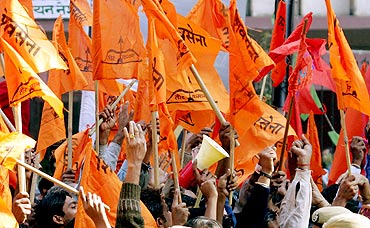
Rohatgi contended that there could be no title suit pending after the government's acquisition of the land in 1993.
He said the three judges of the Lucknow bench also agreed on the need for a mediated settlement and had fixed September 24 as deadline. But the dispute was such an emotional issue that a timeline cannot work.
Opposing the plea of Tripathi, a counsel for the Sunni Wakf Board said his petition was motivated and should not be entertained at this stage.
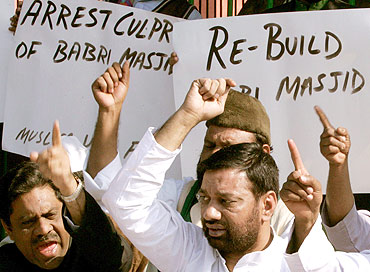
Senior advocate Ravi Shankar Prasad, appearing for one of the parties, said, "He (Tripathi) is a non-serious party" who did not appear regularly before the Lucknow bench of the Allahabad high court during the protracted hearing.
He said the plea -- that the pronouncement of the verdict may lead to adverse consequences -- should not be considered. "If these arguments of consequences are accepted, then even a bail plea could have a negative consequence," he said.
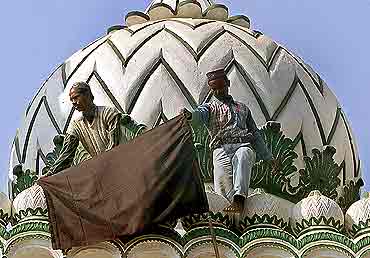
Former attorney general Soli Sorabjee, who appeared for one of the parties, agreed with Prasad and said, "Judicial function cannot be made hostage to consequences."
Sorabjee said the out-of-court settlement was tried even by a former prime minister but he could not succeed. "We are hundred per cent for the settlement, but also hundred per cent against the plea the judgment be deferred," he said.
The apex court, on September 23, had stayed for a week the high court verdict, which was to be pronounced on September 24, after Tripathi, a retired bureaucrat, approached it to explore the possibility of an out-of-court settlement.